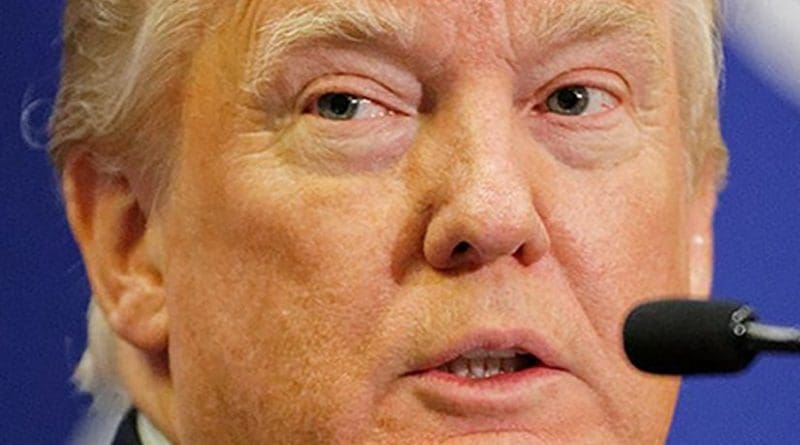The Realist Civil War And Donald Trump – OpEd
I’ve covered elections since 2008, both as a blogger and journalist. As a blogger, writing about two US elections of 2008 and 2012, and the Indian general election and the UK election. As a journalist and correspondent, New Zealand elections and Fiji elections. Never in my life, have I encountered an anomaly like Donald Trump.
Now, as a foreign policy researcher (and as my publications show, I consider myself to be a neorealist) and I have written enough about why neither Trump, nor Obama are realists of any sort. Other realists have written similarly as well. (Walt on Obama, Walt on Trump, Joffe on Obama, Blatt on Trump)
But that debate suddenly just got vicious.
As readers remember, Daniel Drezner first wrote about how Trump is/will be accepted as a foreign policy realist, because of how he sounds realist, has specific policy proposals similar to the stark realist world even some realists shudder to think about. I flinched at the thought then. But it is no shame to write now, perhaps I was wrong, and I underestimated Trump’s legitimisation within the realist foreign policy community.
The recent episode was the firing of a fellow of National Interest, who like a lot of realists, opposed this legitimisation of Trump by hosting him and correctly pointed out in an essay for the War on the Rocks, (where I write occasionally as well, which I must mention here for the sake of balance), that Trump is a charlatan and is too incoherent to be a realist president. Of course National Interest justified the hosting of Trump but it was not convincing, to say the least.
So where does that leave realists now?
I believe, this is what we see, a reckoning, a intra-doctrinal civil war, which every theory must face at some point of time, when faced with reality and policy. Realists, including myself, like to claim that ours is a systemic theory, and ideologies don’t matter but in reality, a lot of realists when translating this systemic theory into policy, tends to be partisan and ideological. That reflects in their (our!) opposition of Obama, or support of Obama’s policies, and that reflects in their denouncing or legitimisation of Trump. That also reflects the basic cleavage of realism, the difference between defensive and offensive realism and the policies that is determined accordingly, the difference between supporting cooperation as alliances or competition as a hegemon, between proposing complete chaos and solidifying one’s position as the world burns around, or actively working for order and hegemonic peace. Both are realism, but both prescribe very different outcomes.
What should be a realist foreign policy then? And accordingly, who should be a champion of that realist foreign policy? And most importantly, where is the line drawn? It is time to find out.
If this is the start of a theoretical and ideological civil war within the discipline, which might provide these answers, then it is about time.

